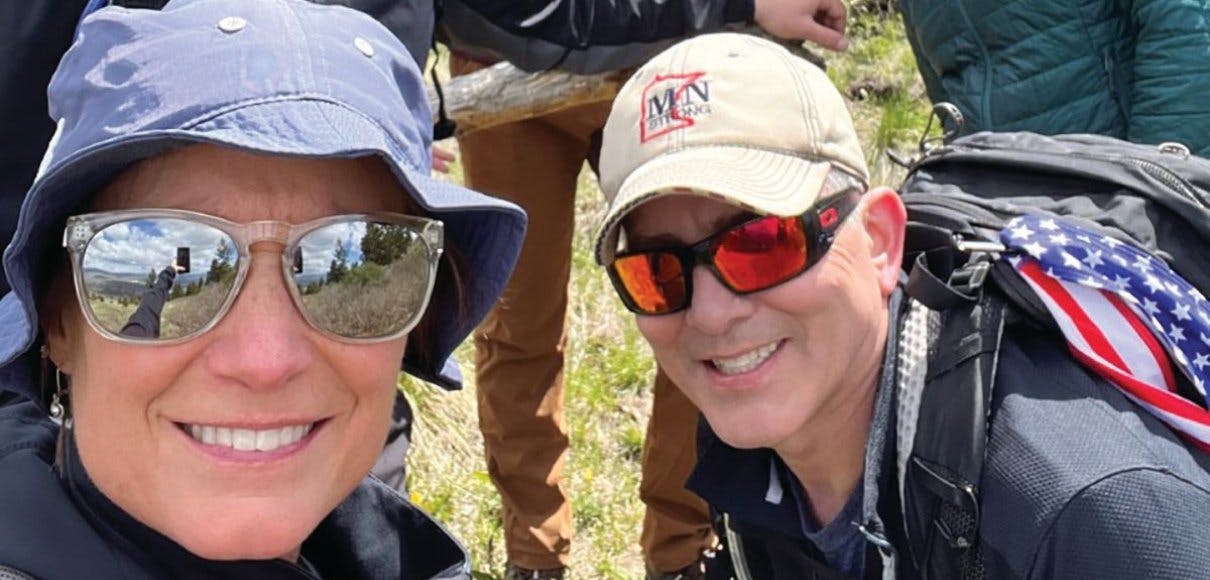 EVERY TIME the Mayo Clinic called Annie Peshut with news of a potential kidney donor, she hoped the search was over. Then, a few days later, the phone would ring again, and she’d discover it wasn’t going to work after all.
EVERY TIME the Mayo Clinic called Annie Peshut with news of a potential kidney donor, she hoped the search was over. Then, a few days later, the phone would ring again, and she’d discover it wasn’t going to work after all.
In 2019, Annie was in stage five chronic kidney disease — the end stage of renal failure. She felt completely drained of energy, appetite, and often, hope.
“I got to the point where I told the Mayo Clinic I couldn’t mentally take those calls,” Annie said.
Her husband, Mike, became the main point of contact. He wasn’t a match for Annie, but he planned to donate one of his kidneys as part of a chain in a paired exchange program to locate a match for Annie.
In a kidney donor chain, Mike would donate his kidney to a matched stranger. The person who received Mike’s kidney would have a friend or relative who would also make a nondirected donation to someone waiting for a kidney, opening up a whole chain of potentially compatible donors.
In 2019, a national search yielded a kidney donor for Annie. On Feb. 19, Mike and Annie walked into the Mayo Clinic in Rochester, Minnesota, prepared for their surgeries. Then another call came. Annie’s surgery was canceled without an explanation. She was devastated. “How much longer can I wait without dialysis?” she wondered.
A few days later, she learned her donor had had influenza, and her surgery would take place only one week later than originally planned.
In the end, Mike believes the delay allowed Annie time to learn what to expect. “Annie’s a gregarious person. She knew every one of the doctors and nurses a week in advance of her surgery,” Mike said.
The minute she opened her eyes after receiving the donated kidney, she felt better. “It wasn’t until after my transplant that I realized how horrible I had been feeling,” Annie said.
Mike and Annie know firsthand how different the experience is for donors versus recipients. Mike recovered quickly and climbed Kilimanjaro with Kidney Donor Athletes in March 2022.
Annie returned to the hospital several times over the next few years for serious infections. At her one-year and two-year checkups, her body was in organ failure. Finally, last February, her health stabilized, thanks to new medication.
“If I didn’t have this transplant, either I wouldn’t be here or I’d be sitting in dialysis day in and day out,” said Annie, who exercises and eats a healthy diet to take care of her new kidney.
“I’ve been given this gift, and the least I can do is give 100%. I feel responsible to house my donor’s kidney in the best environment I can.”
Photo from the Peshut family




